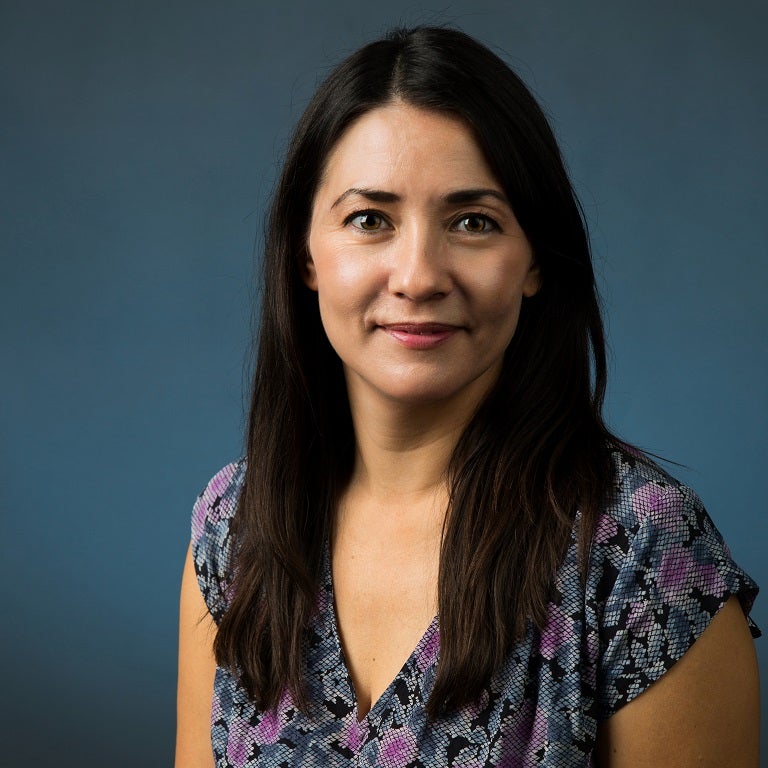Kotche named “Notable Woman in STEM” by Crain’s Chicago Business
Text block one

Finding your calling can take time. That was the case for Miiri Kotche, now a clinical professor in the Richard and Loan Hill Department of Bioengineering at UIC, who was named this week as one of Chicago’s “notable women in STEM” by Crain’s Chicago Business.
Kotche earned her undergraduate degree in engineering but never intended to be a classroom instructor. She worked in industry and only started teaching part-time for the sheer pleasure of it.
She in fact discovered that she loved teaching so much that she decided to go back to school for a PhD in bioengineering—a degree that would allow her to mentor and teach young engineers full-time.
Kotche’s passion and enthusiasm for teaching and her students helped her to attract the notice of Crain’s. The “notable women in STEM” list spotlights accomplished female leaders and role models in science, tech, engineering, and mathematics.
“I was really surprised and thrilled and, frankly, pretty humbled,” Kotche said. “I feel like I have the best job in the world. I am grateful every day to do challenging work that I love, and to be recognized is incredibly gratifying.”
Kotche received her undergraduate degree in general engineering from the University of Illinois Urbana-Champaign and a master’s degree in mechanical engineering from UIC. She then entered the workforce. In her spare time, for “fun,” she started teaching classes at small four-year schools at night, but she could only teach math and physics because she lacked a terminal degree in engineering.
“I found that I absolutely loved being in the classroom but kept thinking, I should be teaching engineering courses, so I should go back to school myself,’” Kotche said. “After nearly 10 years, I ended up coming back to UIC to earn a PhD with the goal of getting into the classroom to help prepare engineering students for industry and beyond.”
She hit the ground running as an adjunct in bioengineering in 2011, moving from visiting professor to full-time clinical faculty member.
Kotche spent the last decade going above and beyond for her students, spearheading several programs to help improve their experiences. She helps to lead the Freshmen Engineering Success Program, runs a Clinical Immersion Program that gives bioengineering students firsthand experience in a medical environment, and works with the College of Medicine on the Innovation Medicine Program, which aims to produce physicians who can solve clinical problems with creativity and technology.
One of the projects Kotche is most excited about is Bioengineering Experience for Science Teachers, which she founded with UIC College of Education Professor Jennifer Olson. The two received a National Institutes of Health grant to bring high school teachers from Chicago Public Schools to spend the summer working in bioengineering labs with students and faculty. The CPS teachers then take what they have learned and create curriculums for their own classrooms.
“It has been really gratifying because we focus on making sure we have a diverse group of teachers that teach students from all kinds of socioeconomic backgrounds and all the different kind of schools in the city: neighborhood, magnet, selective enrollment,” Kotche said. “We know our program directly impacts how teachers teach in their classrooms. We want to give them exposure to what bioengineering is so that they can pass this knowledge on to their students through lessons and activities. Ultimately we hope to encourage students to pursue bioengineering at UIC.”
Most recently, in response to the coronavirus crisis, Kotche collaborated with two colleagues from UIC’s MakerSpace production facility to design and produce face shields to protect local frontline healthcare workers.
Throughout her teaching career, Kotche has strived to be a strong female mentor for all of her students.
“Looking back at my own education, I can remember how few women were in my classes, and even fewer were taught by women,” she said. “I want to help represent women as a role model. Not just for our female students, but also for our male students, so they can see a female in a role-model situation.”
Kotche added that it has been really encouraging to see all the progress that has been made in the past few decades, partially in bioengineering, where women make up generally half of the undergraduate population. She said there is always more work to do, though, as women are less represented in engineering as a whole.
“On top of that, there is a leaky pipeline issue, where we start out with a lot of females in an undergraduate program, but as the master’s and PhD programs progress, there are fewer and fewer women,” she said. “We see the same thing in industry with women in leadership positions.”
She is hopeful that these areas can continue to be improved on and that UIC can be a leader in helping empower women and other underrepresented minorities.
“We are really lucky to be in the heart of Chicago, where we draw a diverse student population, which is one of our university’s strengths,” Kotche said. “Diversity helps increase talent, innovation and creativity in bioengineering, which will ultimately help us address some of the biggest challenges in medicine and healthcare.”